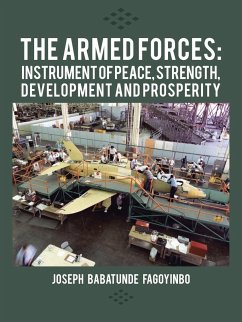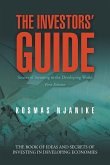Across the ages, technological developments have been accelerated by the military. This results from the fact that able-bodied vibrant youths are generally involved and are also exposed to high-tech training prevailing at their times for assignments (defence and security) that are essential but not desired. They form the Armed Forces for the nations. Such brilliant military officers like Caesar and Napoleon made their marks; and, in contemporary times, the Armed Forces of United States, France, Britain, Australia, etc are making remarkable contributions to technological developments. Such infrastructure as the Internet, the GPS and the cell phones are products that have significant military contributions. This book scans across the major regions of the world, highlights the efforts of representative countries in the regions and observes that nations that have harnessed the efforts of their Armed Forces have progressively developed. It is also observed that developments in America and Europe, though not entirely dependent on their Armed Forces, have been greatly affected by their efforts. In Asia, such countries as the People's Republic of China, Brazil, India, Pakistan and Singapore utilise the human and material resources within the Armed Forces for national growth and cohesion. Development effort is least in the African Region, except South Africa and Egypt; notwithstanding the high potentials as exhibited by Nigeria's Armed Forces. Although attempts to industrialise through the Armed Forces may be able to create economic development for developing nations, such factors as historical background, economic resources, political climate, government policies and infrastructure are equally important. Economic development programme of an aspiring country should: i. promote education and access to knowledge ii. aspire to economic self-sufficiency in economic power iii. allow and promote private sector and foreign participation in defence production, research and development iv. commit itself to the establishment and support of defence industries v. indigenise defence programmes, establish a balance between military and economic development and vi. mobilise the nation's economy through technology partnership with the private sector and foreign investors.
Hinweis: Dieser Artikel kann nur an eine deutsche Lieferadresse ausgeliefert werden.
Hinweis: Dieser Artikel kann nur an eine deutsche Lieferadresse ausgeliefert werden.








